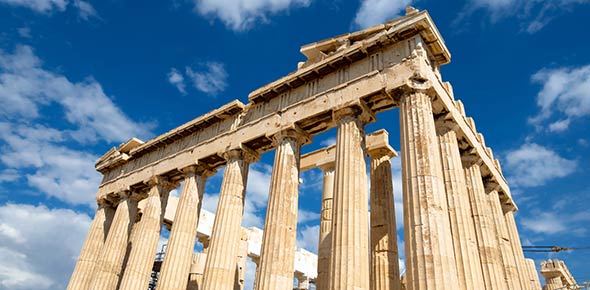Related Flashcards
Related Topics
Cards In This Set
| Front | Back |
|
Aelius Aristides
|
(AD 117-181); Popular Greek orator in Roman Empire. Considered prime example of Second Sophistic
|
|
Ammianus Marcellinus
|
(mid to late 4th Century); Roman historian and writer and friend of Julian
|
|
Arius
|
(AD 256-336); Early Christian theologian. taught that Jesus was not eternal, and was subordinate to God (Arianism); Excommunicated by Bishop Alexander of Constantinople
|
|
Asceticism
|
(Christian) practice of austere self-discipline, voluntary undertaken, in order to achieve a higher or spiritual ideal.
|
|
Aurelian
|
(AD 214-275); successful 'soldier-emperor' that ended the Crisis of the Third Century. Re-united Rome in its entirety.
|
|
Battle of Adrianople
|
(AD August 9, 378);Overwhelming victory of Germanic Tribes over Roman Army led by Emperor Valens
|
|
Battle of Milvian Bridge
|
(AD October 28,312);between the Roman Emperors Constantine I and Maxentius. Constantine won the battle and attributed his victory to the God of Christianity.
|
|
Caracalla
|
(AD 186-218); the son of Emperor Septimius Severus. Proclaimed co-emperor with brother Geta when his father died. Later murdered Geta and his family.
|
|
Constantine I
|
(AD 272-337); Great Roman Emperor that legalized and greatly helped spread Christianity in Empire. Responsible for Edict of Milan (313 AD); still supported pagan gods, and baptized close to death
|
|
Constantinople
|
Greek Orthodox Christian city, lying in the most Christianised part of the Empire; Renamed by Constantine as capitol of Empire for geographical reasons
|
|
Constantius II
|
Roman emperor from 337-371 AD;had non-christian family members killed. Was challenged by and later named Julian as Emperor
|
|
Constitutio Antoniniana
|
(212 AD); Edict declared by Caracalla all free-born men of the Roman Empire were to be given full Roman citizenship and all free-born women of the Empire were given the same rights as Roman women were
|
|
Ambrose of Milan
|
(AD 340 � 4 April 397), bishop of Milan was one of the most eminent bishops of the 4th century
|
|
Council of Nicaea
|
(AD 325); Constantine I called for first conference of bishops of the Christian Church to resolve disagreements in the Church of Alexandria over the nature of Jesus and God.
|
|
Decius
|
Roman emperor (249 - 251);Early in 250, Decius issued the edict for the suppression of Christianity. Greatly persecuted Christians
|





